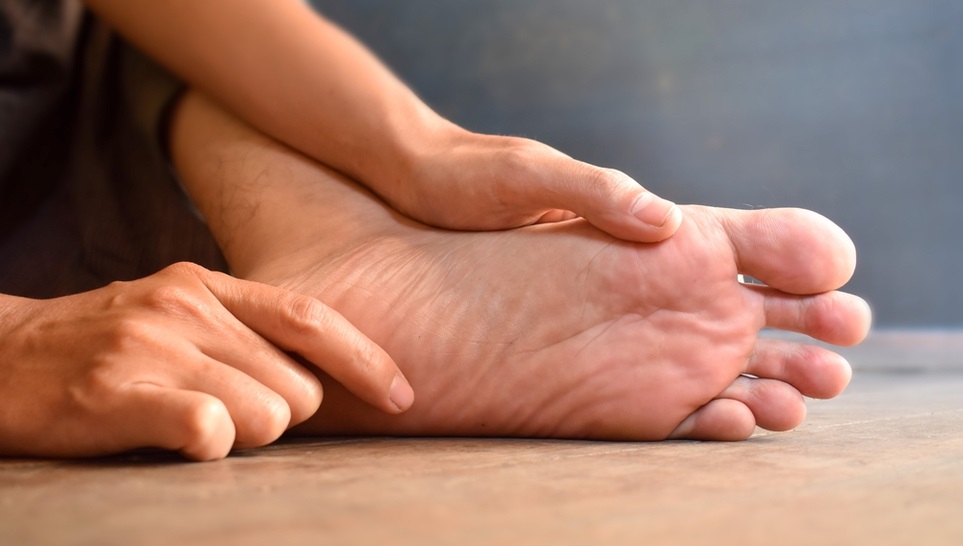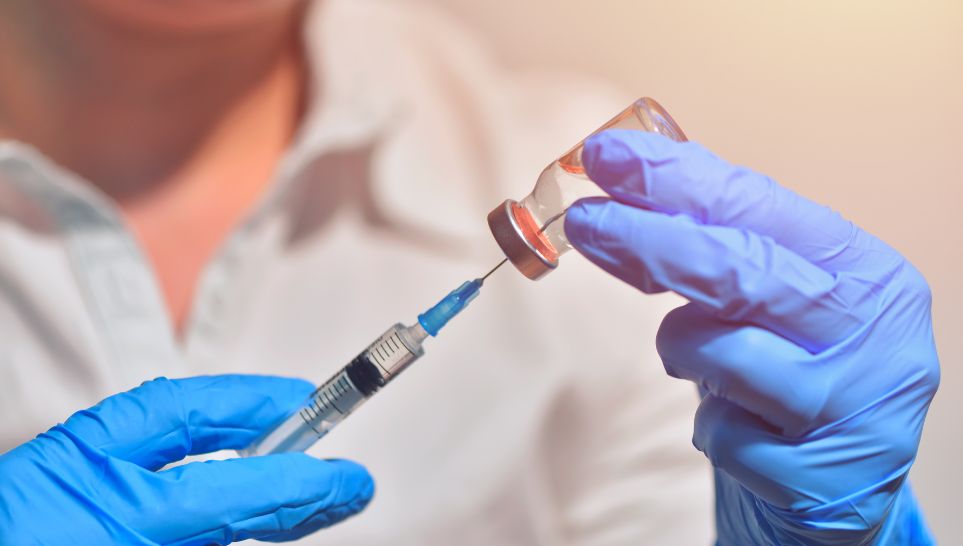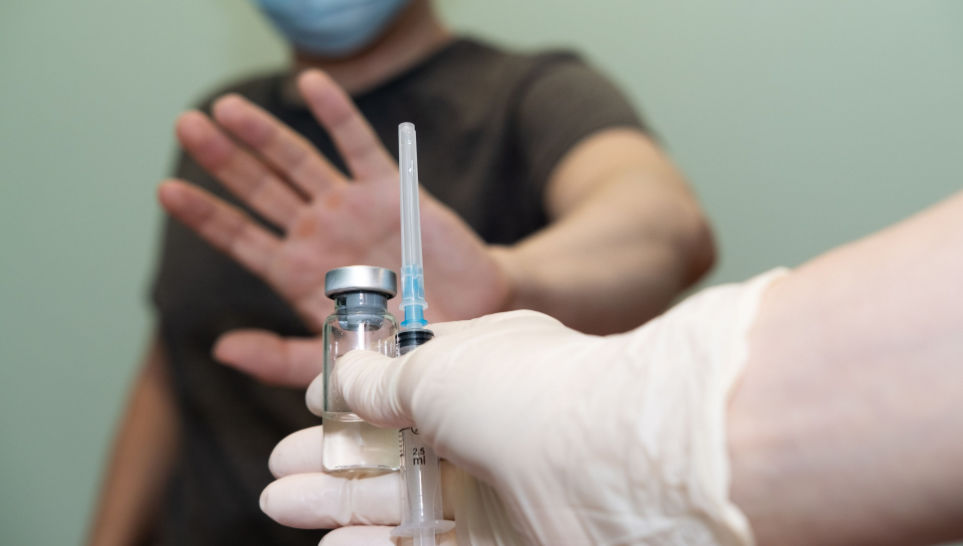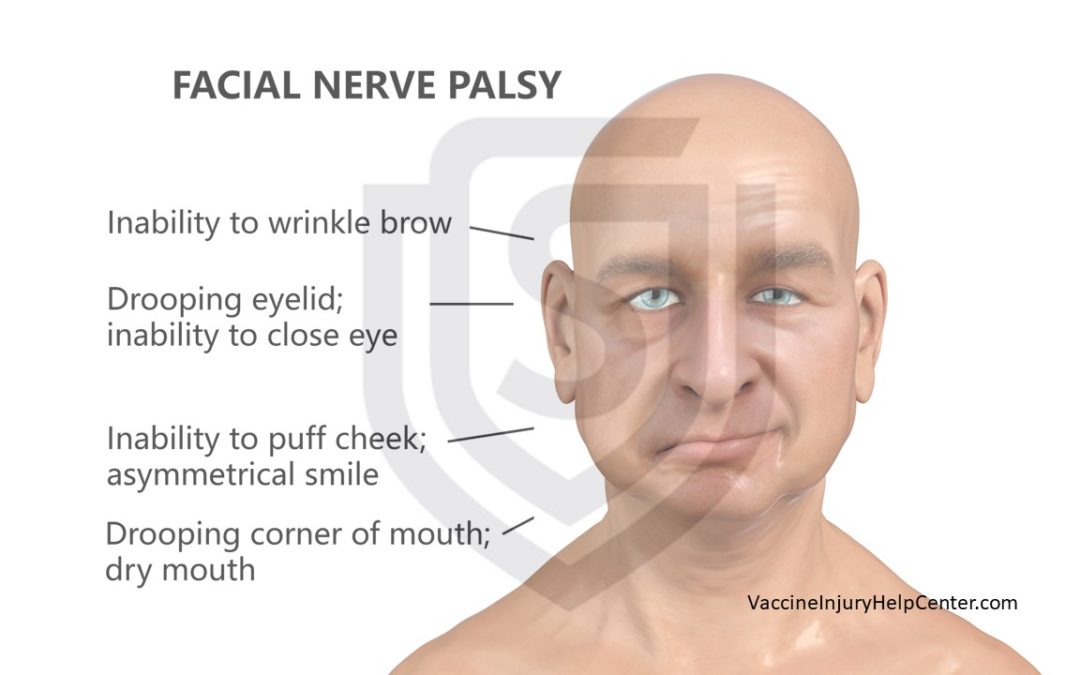
Although most patients who get their annual flu vaccine may have very mild reactions (if any), some people may experience much more severe complications due to vaccination.
Although serious conditions due to the influenza vaccine are generally rare, thousands of patients each year are diagnosed with Guillain-Barré Syndrome due to flu vaccines.
If you got your influenza vaccine and began experiencing weakness on one side or bilateral weakness, vision problems, difficulty swallowing or speaking, or a prickling or tingling pain in the extremities, you may have developed GBS.
Although the risk of GBS due to vaccination is low in most people, and the symptoms can coincide with symptoms of many other infections or conditions, you may want to visit your doctor to find the exact cause of your condition and rule out possible GBS.
Guillain Barre Syndrome is a rare disorder, but the symptoms GBS patients experience inhibit the quality of life, cause severe pain, and can be fatal in some cases.
Learn more about the condition, its causes, and additional complications associated with developing GBS.
What Is Guillain Barré Syndrome GBS?
GBS is a peripheral nervous system autoimmune disorder where the body’s own immune system attacks the nerves in the body.
Studies suggest that GBS patients may have had an infection and later developed GBS.
Researchers believe that as the immune system fought the infections, the immune system may have confused the body’s nerve cells with an invading bacteria or virus. Once the infection is over, the immune system continued to attack the peripheral nerves.
Because the nervous system manages most body functions, sensation, and motion, damage to the nerves by GBS can quickly cause someone to deteriorate.
Damage to the nervous system occurs quickly, to the point of requiring an extended stay in the intensive care unit (ICU).
The Center for Disease Control says there is evidence that the flu vaccine can lead to an increased risk of GBS, especially in the case of the swine flu vaccine.
The CDC notes that new GBS patients due to flu vaccines occur at a rate of two people per one million doses among vaccine recipients.
In both 1976 and 2009 swine flu outbreaks, the swine flu vaccine demonstrated a statistically higher GBS increase when recording adverse events.
The Different Types of Guillain Barré Syndrome GBS

According to the vaccine injury table, there are four main kinds of Guillain Barré Syndrome conditions. Each has its own set of symptoms, and mild symptoms may begin within 12 hours of GBS onset.
Typically, the symptoms peak and begin to recede within 28 days of the onset (called the nadir of weakness, it describes the downturn in the severity of symptoms).
In all types of Guillain Barré Syndrome GBS, fluctuations in the severity of symptoms may occur due to treatment.
However, recurrence beyond nine weeks after symptom onset would not be consistent with GBS diagnosis.
Acute Inflammatory Demyelinating Polyneuropathy (AIDP)
AIDP is categorized by pathologic and electrodiagnostic features affecting the demyelination of peripheral nerves for motor and sensory function.
It can lead to sensory disturbance, symmetric motor weakness of limbs, and other conditions, including:
- monophasic pattern of symptoms (symptoms occur in one stage, relapse unlikely).
- clinical plateau at the improvement of symptoms either through treatment or as the disease runs its course.
- no more likely diagnosis outside of GBS.
Acute Motor Axonal Neuropathy (AMAN)
AMAN is typically seen in countries outside the U.S. and is categorized by axonal damage that largely affects nerves used in motor functions. Symptoms include:
- bilateral weakness in limbs or lack of reflex movement in weak limbs.
- a single phase of symptoms with onset and nadir between 12 hours and 28 days.
- a clinical plateau of symptoms due to either treatment or over the natural course of the disease.
- no other diagnosis that is more likely than GBS.
Acute Motor and Sensory Neuropathy (AMSAN)
AMSAN is similar to AMAN but also affects peripheral sensory nerve cells, leading to decreased motor function, bilateral muscle weakness, and sensory disturbance.
Miller Fisher Syndrome (FS)
Miller Fisher Syndrome, also called just Fisher Syndrome, is characterized by its own set of symptoms. Additionally, FS may feature overlap with AIDP and may include limb weakness.
Symptoms of FS include:
- bilateral reduction of or lack of reflexes in limbs (areflexia).
- symmetric paralysis or lack of muscle control around the eyes (ophthalmoplegia).
- reduced or absent muscle control (ataxia).
- the absence of bilateral limb weakness categorized by AIDP, AMAN, or AMSAN.
- No more likely diagnosis.
All forms of Guillain Barré Syndrome GBS must include diagnosis by cerebral spinal fluid (CSF) and electrophysiologic testing to indicate that CSF proteins show a value of 11 and a CSF white blood cell counts show a value of fewer than 50 cells per microliter.
Additionally, many other neurological conditions share similar symptoms to GBS. A diagnosis for GBS may not qualify if the ultimate diagnosis for a patient includes a condition that affects the nervous system, such as multiple sclerosis, carcinomatous meningitis, or anterior horn cell diseases such as West Nile.
Several diseases or conditions can disqualify a Guillain Barré Syndrome diagnosis, as there must be no other more likely diagnosis before a diagnosis of GBS.
What Are the Symptoms of Guillain Barre Syndrome Flu Shot Complications?

Developing GBS increases the risk of secondary complications. GBS patients and former GBS patients are at increased risk of additional health problems due to the acute nerve damage brought on by Guillain Barré Syndrome GBS. These secondary conditions can include:
- heart and blood pressure problems
- elevated risk of developing blood clots
- reduced capability for breathing, which can rarely lead to death
- additional nerve pain developing after the initial course of GBS
- lingering numbness, tingling, or other sensations, particularly in the extremities like hands and feet
- bedsores if patients spend long periods of time in the hospital
- very rare instances of recurrence of GBS symptoms
Most people will recover with very few residual problems. Most cases only last a few weeks, although the nerve damage caused by Guillain Barre Syndrome can leave lasting degeneration of functionality for another few years.
Several research studies are ongoing as the medical community hopes to understand more about how patients develop GBS, the causes of the disease (including vaccination), and the progression and resolution of symptoms and lingering effects.
Center for Disease Control Records Instances of Guillain Barré Syndrome Due to Flu Vaccines
The CDC records and tracks instances of Guillain Barré Syndrome that occur naturally as well as those caused by the influenza vaccine.
According to the CDC, the number of background cases (not due to vaccination) of GBS is between 80 to 160 cases diagnosed each week.
Additionally, although the CDC tracks the data, the statistical association between Guillain Barré Syndrome GBS is inconsistent across flu seasons.
The average increased risk of developing GBS due to vaccines is small, attributed to only one or two additional cases per million vaccinations.
As previously mentioned, the CDC noticed an upward trend of GBS patients in 1976 and 2009, with a higher recorded incidence in response to vaccination by swine flu shots.
What Is the Cause of a Rare Autoimmune Disorder Due to Flu Shots?

The direct cause of Guillain Barré Syndrome is still not entirely known. Researchers believe the disease activates during a period of infection while the immune system fights off the invading virus.
During the course of the infection, the immune system may mistake the nerve cells for the virus and attack the nerves directly. After the body has successfully defended from any infections, the immune system continues to attack the nerves.
Common infections or triggers for Guillain Barre Syndrome include:
- Zika virus
- influenza vaccines
- campylobacter jejuni
- hepatitis A, B, C, or E
- influenza
- HIV
- Epstein Barr virus
- cytomegalovirus
- mycoplasma pneumoniae
- trauma
- surgery
- Hodgkin’s lymphoma
The likelihood for someone to develop GBS due to the flu vaccine is small, only approximately two cases per million vaccinations. Still, the statistical significance of flu vaccines leading to Guillain Barre diagnoses is large enough for the CDC to state the likelihood that the flu shot can lead to an increased risk of GBS.
Treatment for Guillain Barré Syndrome GBS Patients
GBS patients may require admission to the hospital for paralysis, muscle weakness that can affect respiration, and severe pain due to nerve deterioration.
People with the greatest risk are those who face respiratory failure. Treatment can include ventilation for breathing problems, high doses of pain medicine, and extended patient care in ICU (Intensive Care Unit).
Specialized acute treatment options for GBS may include plasma exchange or high-dose immunoglobulin therapy to reduce the instance of the autoimmune response further damaging the nerves.
Once the immune response is interrupted, the patient must be monitored closely by hospital staff for additional symptoms and to prevent secondary conditions like pneumonia or other problems.
Although there is no cure for GBS, people who develop GBS may enjoy better treatment options or a cure in the future. Research into the causes, functions, and progression of GBS could lead to improved care or a cure soon.
Additionally, if researchers can find the link between the flu vaccine and the likelihood to develop GBS, they may determine a new method to make the flu shot safe.
FAQ

Do Other Vaccines Come with an Increased Risk of GBS?
As of now, the only vaccine with a strong statistical and causational link to GBS is the flu shot. Other vaccines like the tetanus vaccine show no correlation or relationship to developing GBS.
Despite strong statistical evidence that the flu vaccine can lead to GBS, the incidence is low, only representing one to two vaccine recipients per million doses administered. Influenza vaccinations still prevent thousands of deaths due to the flu each year.
Can I Manage My Risk of Developing GBS?
GBS occurs naturally after a bout of infection when your body attacks itself after fighting off the initial infection. You also may develop GBS after either a flu shot or an episode of influenza.
You will need to determine which set of risks best suits your lifestyle. Keep in mind that the instance of GBS due to the flu vaccine is statistically low, and the flu vaccine prevents death from the flu. You may opt not to get the vaccine, catch influenza, and still develop GBS.
How Can I Get a Guillain Barré Syndrome GBS Diagnosis?
You will need to be admitted to the hospital for observation at the onset of the disease and for medical care as the condition worsens.
Additionally, according to the vaccine injury table, GBS cannot be diagnosed with lab results from a spinal tap to measure cerebral spinal fluid (CSF) immune response values.
Observation will allow your doctors to measure the progress of your GBS and make an accurate diagnosis compared to other neurological disorders.
Many neurological diseases include a similar set of patient problems, so your doctor may be able to diagnose GBS due to rapid progression and bilateral presentation of muscular weakness in the limbs.
What Additional Complications Can Occur with Guillain Barré Syndrome?
Ongoing issues for former GBS patients are rare. Former GBS patients may still report problems with their heart or blood pressure, numbness or tingling in the extremities, or difficulty breathing due to neurological degradation.
Lingering problems can occur for people who developed GBS naturally or as a result of the flu vaccine.
What if I Suspect I Got GBS from the Influenza Vaccination?
It is very difficult to prove a GBS diagnosis due to the flu vaccine. Vaccine manufacturers may argue that vaccines are statistically safe despite the CDC causation link.
Contact a local vaccination lawyer if you believe the flu vaccination led to your GBS. Many lawyers who fight flu vaccination GBS cases offer a free consultation.
For more information about filing a GBS case in New York or New Jersey, contact Vaccine Injury Help Center. We’re ready to fight for you to pursue justice against dangerous vaccines and their manufacturers.





